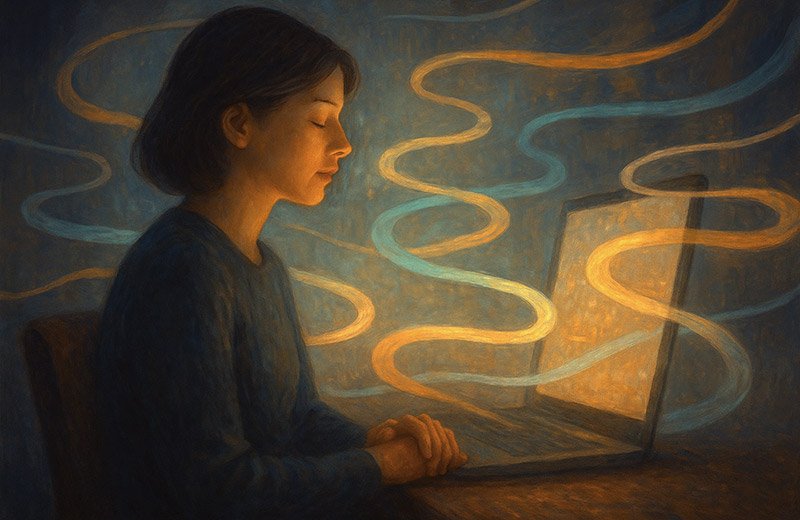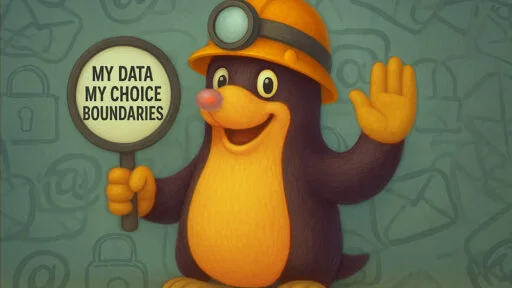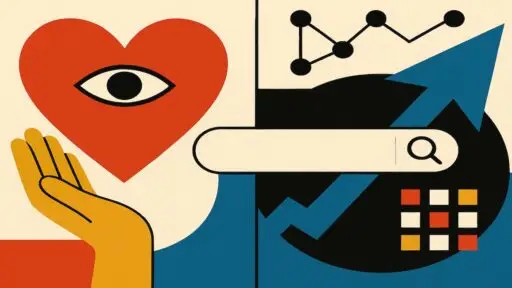Is it Possible to Find Peace Online?
Table of Contents
Here’s how I search for peace online. I used to get overwhelmed by too many possibilities when I opened my laptop. There would be tabs everywhere, notifications pinging, feeds updating, and messages waiting for me. I’d tell myself I was checking one thing, then suddenly, an hour later, I’d be reading some thread about something I didn’t even care about. The web grabs your attention and doesn’t let go.
At some point, I realized I wasn’t even looking for information anymore. I was looking for a way out of all the noise, pressure, and endless scrolling. So I intentionally started trying different things. Not productivity hacks, app blockers, or anything like that. I wanted to see if I could actually find peace online, or if that was impossible.
1. The Noise We Don’t Notice
Most of the chaos online isn’t even loud or overt. It’s all the invisible stuff—notifications you barely register, ads in the corners, autoplaying videos, and never-ending feeds. You feel pulled in a hundred directions, but you can’t quite say why.
Every app wants you to hang out a little longer. Every algorithm is learning what keeps you coming back. And before you know it, your curiosity has turned into a possessive current dragging you downstream.
When I started noticing how unsettled I felt after every “quick check,” I began thinking of attention like money. You only have so much of it.
That’s when I stopped hoping to find peace after logging off the internet and started looking for it while I was online.
2. How I Rebuilt My Digital Environment

You don’t have to quit the internet to feel better. You have to change how you use it.
I started small:
- Turned off all notifications except texts from actual people
- Changed my desktop wallpaper to just one solid color
- Made my browser open to a completely blank page
Each little change removed some tiny bit of friction. The web didn’t get calmer; I just stopped letting it grab me by the collar every time I opened it.
Then I made myself a rule: before opening a new tab, pause and ask why.
Am I actually looking for something, or am I just bored? Do I want information or just mindless distractions? Am I seeking connection or validation?
That one second doesn’t get rid of the noise, but it stops me from confusing distraction with actually finding something worthwhile.
3. What I Follow and What I Don’t
The more I cut away, the clearer it became what actually felt good to read. I stopped following people who posted constantly and started following people who seemed to think before they hit send. I picked one good newsletter instead of subscribing to ten mediocre ones. I found creators who work slowly and intentionally.
Peace started feeling less like total silence and more like just… a slower pace I could actually keep up with instead of just reacting to.
I also got comfortable unfollowing people without feeling guilty. Being curious doesn’t mean you have to look at everything. It means choosing where to look.
When the feed got overwhelming, I’d close it and open something I’d saved, like an essay or a video I’d bookmarked. Something that would still matter in a year, not just in the moment.
That’s when it hit me: peace isn’t missing from the internet, it’s just buried under all the “urgent” stuff.
4. How I Search for Peace Differently Now
The most significant change came when I stopped treating search like a slot machine.
Instead of typing “best” or “top,” I started searching for “thoughtful,” “independent,” or “long-form.”
Instead of “productivity tips,” I’d search “how to focus without burning out.”
The words you use shape what you find. And the tone of your curiosity determines what kind of internet shows up.
Google runs on algorithms, sure, but finding peace runs on intention. When I search more slowly, I read more slowly. When I read more slowly, I think more clearly.
Sometimes I browse without even looking for answers—just reading to understand how other people see things. That’s when the web starts feeling like a library again, not a casino.
5. The People Behind the Pages I Visit
For a long time, I forgot that actual people make the internet. Articles, videos, code, comments—someone like me sat down and made all of it.
Remembering that changes everything. It brings back some empathy.
When I see something I disagree with online, I try to picture an actual person who might have different experiences than I do. Not worse intentions—just a different life. That simple shift turns anger into something closer to humility.
It’s easier to stay calm when you stop treating every disagreement like an attack.
6. Rest as a Digital Skill
The longer I’ve been doing this, the more I realize rest is actually part of the whole thing.
I once thought rest was what happened after work. Now I see it as maintenance, the quiet reset that makes focus possible in the first place.
So I started building offline habits into my online time:
- Close the laptop before sunset
- Step outside after every writing session
- Keep a notepad by the keyboard for thoughts that don’t need to be typed
Peace online starts with peace offline. They’re reflections of the same attention, not two different worlds.
7. Why This Matters
The internet isn’t going to get quieter on its own. Creating silence or meaning is on us.
We can design our digital spaces with care, boundaries, and room to breathe, just as we do our physical ones.
How we search reflects how we live. If we’re searching frantically or fearfully, our days feel like that, too. But if we search with curiosity and some calm, even the busiest parts of the web become places to think instead of react.
How I search for peace online is informed by groups like the Center for Humane Technology that remind us that our attention is sacred.
The web will always offer noise. Peace is just learning to scroll past it.
I explored this more in The Ripple Effect of Kindness & Gratitude.
Sources
Cal Newport. “Digital Minimalism: Choosing a Focused Life in a Noisy World.” Penguin, 2019.
Pew Research Center. “How Americans Navigate Digital Overload.” 2024.
Nir Eyal. “Indistractable.” BenBella Books, 2019.
Center for Humane Technology. “Reclaiming Attention.”









